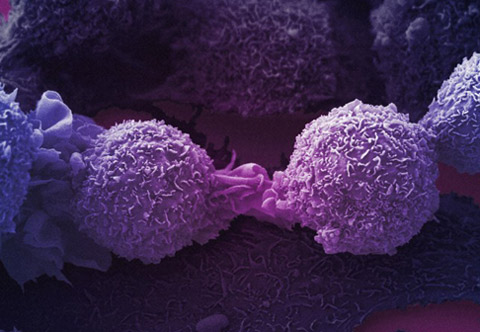case researchers discover gene that stops cancer cell proliferation

Case Western Reserve University School of Medicine researchers have made a groundbreaking discovery that could stop the proliferation of cancer cells in patients without the need for toxic chemotherapy.
The researchers discovered a mutant form of the gene Chk1. When expressed in cancer cells, it halted their proliferation and killed them. The finding that artificially activating Chk1 alone is enough to kill cancer cells is unprecedented.
"We have identified a new direction for cancer therapy... leading us to a reduction in toxicity in cancer therapy, compared with chemotherapy or radiation therapy," said Dr. Youwei Zhang, Assistant Professor with the Department of Pharmacology at the School of Medicine and a member of the Case Comprehensive Cancer Center, in a release. "With this discovery, scientists could stop the proliferation of cancer cells, allowing physicians time to fix cells and genetic errors."
If the researchers' strategy pans out, then cancer patients could potentially be treated by activating Chk1 in cancer cells, rather than using chemotherapy.
Future research by Dr. Zhang and his team will focus on approaches to artificially activating Chk1 in cancer cells.
Source: CWRU School of Medicine
Writer: Lee Chilcote

